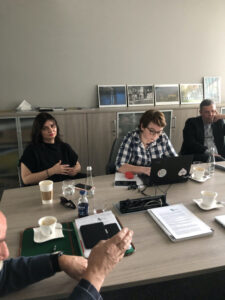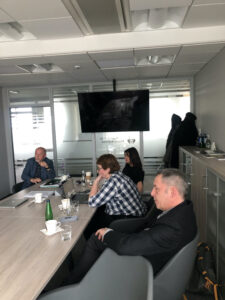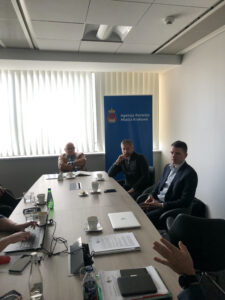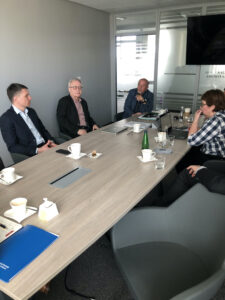The subsequent meeting of the krk UrbanHub Council was held on February 18, 2022 at the seat of the Krakow City Development Agency (ARMK) with the participation of the Agency’s president, Jan Pamuła. The aim of the meeting was to determine the next tasks of the hab, which would contribute to the revitalization of the Wesoła area in Krakow through the involvement of various environments and institutions for actual and effective participation in defining the objectives of the revitalization of Wesoła and their implementation.
The participants of the meeting agreed that the process of revitalization of Wesoła should be characterized by inclusiveness and participation, and create the possibility of learning, which also results directly from the initiative of the European Commission, New Bauhaus in the spirit of which we implement the mission of Krk UrbanHub.
- Techniques, materials and construction and design processes
Examples of solutions from the surrounding environment, serving to mitigate climate change, protect the environment and favor greater affordability and social inclusion. - Building in accordance with the circular principle
Model sites / specific sites where material re-use and recycling has been demonstrated; it is a key element of the European Green Deal. - Solutions for the joint evolution of the building environment and nature
Showing how the construction environment can contribute to the protection of nature and biodiversity, taking into account cultural and social needs. - Revitalized urban and rural spaces
Symbolic examples of territorial revitalization combining sustainable development, aesthetics and social inclusion. Especially t developed with broad participation and deep involvement of citizens and stakeholders. - Products and lifestyle
Products and processes contributing to a sustainable, attractive and inclusive lifestyle. It can be fashion, furniture or interior design, but also food or other elements of our daily life. - Preserved and transformed cultural heritage
Positive examples of cultural heritage that have added value to it in line with the principles of sustainable development, aesthetics and social inclusion. - Reimagined places for meetings and interactions
Inspirational examples of using space for positive exchange and community building. - Mobilization of culture, art and community
Illustrating the contribution of art to building a community in a sustainable way. These can be events, festivals, cultural performances aimed at connecting communities. - Modular, flexible and mobile solutions that make life easier
Innovative housing solutions that respond to temporary, extraordinary needs. They implement them while maintaining high aesthetic and sustainable development standards. - Interdisciplinary models of education
Models and methods of education that take into account the values of sustainable development. Including the possibility of social inclusion and aesthetics in the curriculum content and learning process.
At the end of the meeting, a local vision of one of the buildings on Kopernika Street was planned, which could become a space for positive exchange and community building in a sustainable manner, and at the same time bringing together all initiatives aimed at revitalizing Wesoła.






